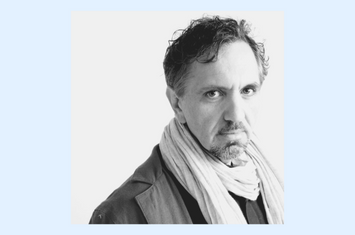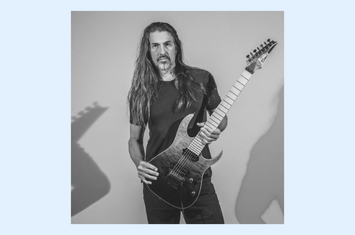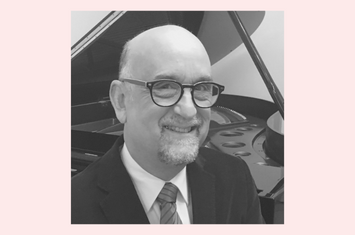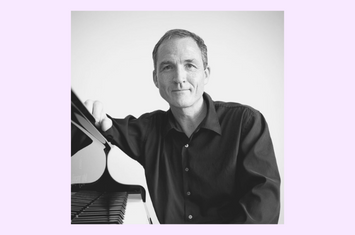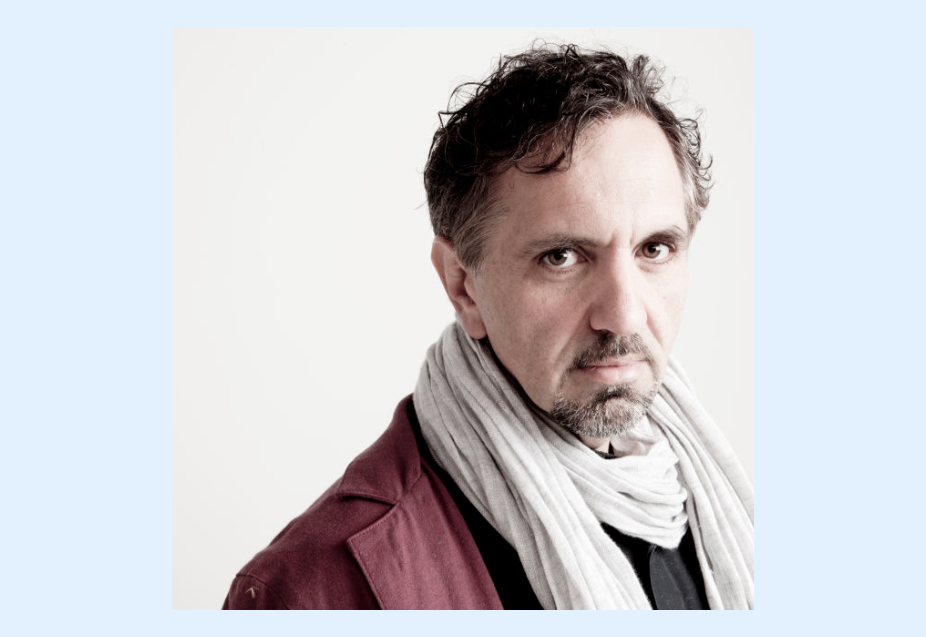
Beginning on the accordion at age 6 and switching to piano at age 15, the Melbourne boy went from playing local functions and talent quests to recording over 10 albums and playing on over 60 film soundtracks.
We talked to Joe about his humble musical beginnings, ongoing inspiration and the successful and passionate career he has built, blending jazz, classical and popular styles to international acclaim.
You've said that, as an improviser, not knowing what comes next excites you and gives you the impetus to perform. What goes through your mind as you impulsively create in front of audiences, and how do you overcome the anxiety of being on-the-spot?
On-the-spot is a cosy place for me. For some reason, this extends to other areas of my life. I tend to excel in situations where I don't have time to get nervous. I rely on my instincts - but can do so because I've trained them very well.
Malcolm Gladwell explains this phenomenon very well in his book Blink, which concerns itself with flash but highly-informed decisions. Improvising is a lot like being a stand-up comedian or giving impromptu speeches. At a whim, you must be able to draw on a vast repertoire of information, quickly work out what is relevant, and assemble it in the most articulate fashion, making it sound like you've spent years pre-ordaining it. Of course you have, but in a different way than you do when you practise a written part. The latter is analogous to that an actor who brings to life someone else's script.
Funnily, when I practise one of my own compositions, it feels like I am reading someone else's script. It is much harder for me than when I improvise.
Throughout your career, you've engaged with a remarkably wide range of musical traditions, and seemingly refuse to contain yourself to a single musical practice or style. Your compositions and arrangements draw on the music of your contemporaries and other jazz greats, classical composers such as Bach and Puccini, music from the films of the Coen brothers, Bluegrass and 1960s popular tunes. At what age did your different musical influences begin to change the way you approached music making, and how did you begin to incorporate those changes into your practice?
I am pretty much self-taught. I began music lessons at six on accordion and had lessons from two gentlemen who were part-time musicians (at different times).
I wasn't sent to a famous or great teacher. I grew up in the humble Italian family and the only records we had were those of Italian pop singers of the time. Therefore, I spent my formative years in isolation in a way, never belonging to any recognised musical establishments. We also didn't have music at my school, the Marist Bros. We had the strap and cane but I didn't like the sound of those all that much! Consequently, I was free to like what I liked and not become beholden to any kind of hierarchy.
I tend to listen to the raw materials of music. To me a C chord is a C chord just as a carrot is a carrot regardless of the cuisine which incorporates it. To me there is only good and bad; or actually, amazing and not-worth-bothering-about. Within the good, to erect barriers between artistic genres and value one over the other is akin to musical racism.
Of course I am the first to scream out if I think something is crap (my comments should not be mistaken for "I like everything", by the way) but usually this has nothing to do with genre, which is only the wrapping paper and not the essence of music.
“I was free to like what I liked and not become beholden to any kind of hierarchy.”
— Joe Chindamo
How do you make a piece of music that has existed for many years feel like your own?
I pretend the composer is my friend and hands me a melody which he hasn't formatted yet. In other words, I strip the work back to the bare essentials and re-compose it, taking it in a direction it could have gone, but didn't. If I have a gift it is that I don't strip the original piece of its grandeur (which is what tends to happen with most reinventions). Moreover I somehow manage to capture the essence of the music. I'm not sure how I do this, to be honest. Wishful thinking, perhaps.
The instrument you are most well known for is not the one you first played. What motivated you to take up the piano, and what were you able to bring to your playing from your other musical experiences?
As mentioned above, I began on accordion but it was too limiting for what I wanted and needed to say with music. The accordion was useful in that it nurtured the gypsy in me. This is particularly useful because I write a lot of music for my partner, violinist, Zoe Black, who thinks I write very naturally for the violin. I am convinced this is somehow linked to my origins on the accordion.
When and how did you begin to create music with other musicians?
I made my first record at 14 and wrote all the arrangements for the musicians. I must've been a sight for sore eyes, walking into the recording studio in short pants and a stack of music under my arm. Prior to that, I was playing at Italian functions in bands. I guess I was about 11 when I started playing with other musicians.
“I've never had a jazz piano lesson in my life, nor one in composition.”
What do you try to achieve when you practise now?
I haven't played jazz at home for many years and the only music I practice, other than that which I need to prepare for concerts, is Bach, Bach and more Bach.
I have always been a student of the piano and perhaps to make up for all the lost years of my youth – I didn't have a piano in the house until I was 16 and had my first lesson on it at 18 – I’ve always felt somewhat behind. Recently, I have been investigating the Taubman technique with a wonderful pianist and teacher Therese Milanovic. It is wonderful and essential to remain a student, in some fashion, in perpetuity.
Who of your teachers do you most remember, and what for?
My second accordion teacher Donato Marciano. To be honest, I don't think he even played an instrument, but he really took me to heart and encouraged me as his star pupil. He had formed an accordion orchestra – can you imagine? We rehearsed every Friday night in a hall in Fitzroy (semi-violent, pre-trendy days) and set up like a string section in an orchestra with me as ‘concertmaster’ at age eight. We played through arrangements of operas, novelty music, and heaven knows what else. I don't remember. He yelled a lot but not at me. To be honest, I don't really know how much he taught me about music; he himself was most likely a terrible musician, but he made me feel good about playing music and for this I will be forever thankful.
I've never had a jazz piano lesson in my life, nor one in composition. The latter, by the way, is evolving into the most important phase of my career. At first people were surprised that my contemporary classical compositions were penned by a man they thought of as a jazz musician. But now, I have a number of important commissions, including one for the Maryborough Music Conference 2015. I wrote for string orchestra, with soloists, master percussionist David Jones, and the amazing Zoe Black on violin.
What do you try to achieve when you perform, and what challenges remain for an experienced musician such as yourself?
As my friend, the wonderful pianist Nikolai Demidenko says, "when you perform you are connecting with eternity." I guess that is what I try to do.
“It's all or nothing with music.”
Who and what inspire you?
A big question. Bartok, Bach, Prokofiev, Barber, Ives, Bill Evans... shall I go on? More immediately, my new direction – that is, composing chamber music – would not have happened without Zoe Black.
Any musical career is full of challenges that come from both without and from within. What encouraged you to push on through the more difficult moments in your musical journey, and what advice would you give to young musicians that aspire to a career in the arts?
What encouraged me to push through? That's like asking my why I decided to keep breathing. Life without music is unimaginable. My advice to young people is, don't do this unless you absolutely love it unconditionally and feel there is no other way you can exist. As Haydn said, "Music is a noble art but a terrible profession." It's all or nothing with music.

